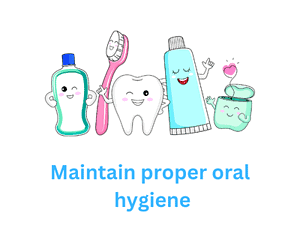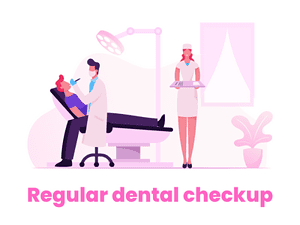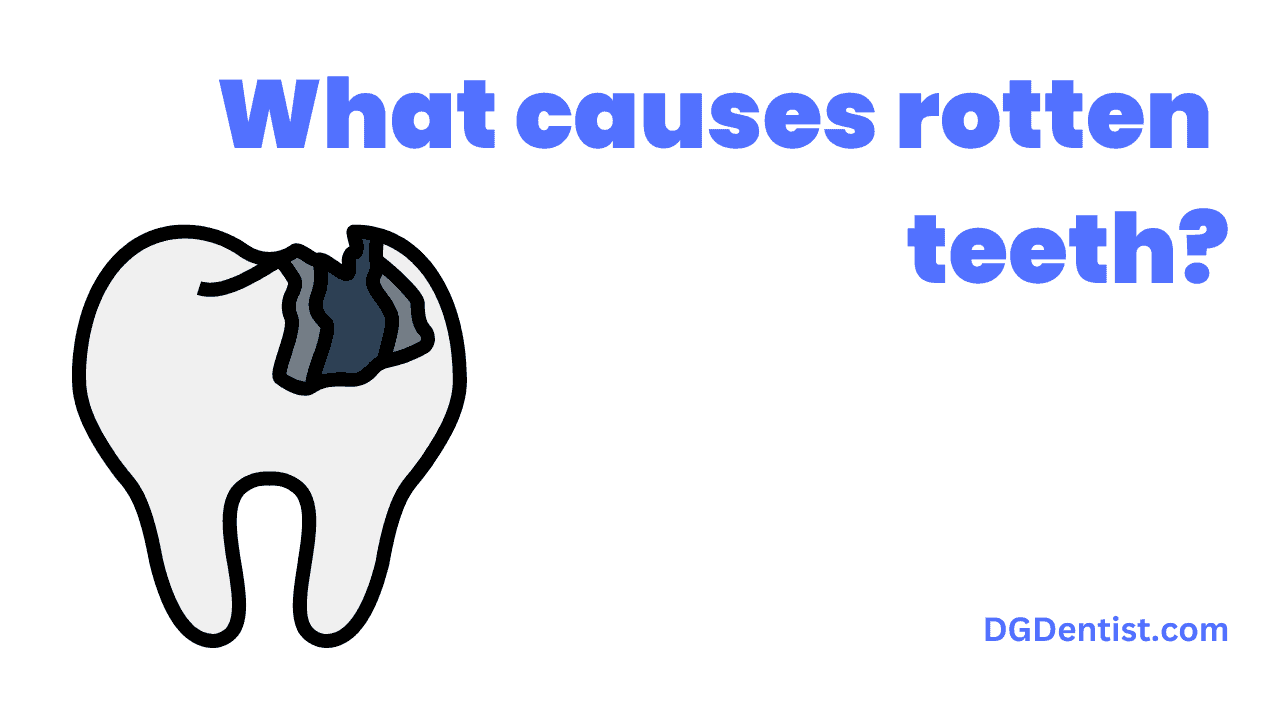Rotting teeth is one of the most common diseases of the mouth. Multiple factors are responsible for teeth rotting, such as poor oral hygiene, specific medical procedures, hypo-salivation, and much more. Let’s discuss what causes rotten teeth and how you can prevent them.
Rotten Teeth Causes
Teeth decay doesn’t happen by a single cause but by multiple factors at once, such as:
- Poor oral hygiene
- Bad food choices
- Hypo-salivation
- Psychological Disorders
Poor oral hygiene
Poor oral hygiene is one of the most common reasons for rotten teeth. A bad or no brushing habit can result in plaque accumulation on the tooth surface.
Regular brushing keeps this plaque away from the tooth surface. But, if brushing is improper, caries-causing bacteria like Streptococcus Mutans colonize the tooth and feed on the plaque.
The bacteria form acid, which causes tooth surface demineralization, also known as teeth rotting.
Bad food choices
Food choices hugely impact the rotting of the teeth. Food choices are vital in affecting oral hygiene and causing dental diseases.
Role of food choices in tooth decay
Some foods are good for our teeth, while some adversely affect the oral flora inviting caries-causing bacteria into the mouth, thus causing decay.
What food causes rotten teeth?
Food that is sticky and remains for a longer time inside the mouth affects the oral flora. Sugary foods also provide a suitable environment for caries causing bacteria to thrive in the mouth. Some of those foods are:
- Aerated drinks (Cold drinks)
- Caramel chocolates
- Fast food like burgers, pizza, etc
- Candles
- Chips
- Dried fruits
These foods usually stick in between the tooth and make it easy for the bacteria to cultivate over it.
What food strengthens teeth?
Food which is rich in calcium and fluoride is good for our teeth. They help to strengthen the teeth by forming a protective layer over them, making them less prone to rot.
- Milk and milk products such as cheese, Yoghurt
- Fluoridated water
- Green & Leafy Vegetables
- Meat
One should always have these foods in a balanced diet for better teeth.
Hypo-salivation
Saliva is anti-cariogenic which means it resists the rotting of teeth. Saliva flushes the mouth and clears out any food particles accumulating on the tooth surface, making it hard for the bacteria to cultivate over it.
If a patient has less or no salivation, also known as Xerostomia or Hypo-salivation, they are more prone to rotten teeth.
There can be various reasons for hypo-salivation, such as
- Underlying disease
- Radiotherapy
- Chronic Anxiety
- Dehydration
Psychological Disorders
Patients with mental illness are more prone to rotten teeth as it is tough for them to maintain proper oral hygiene.
They must be under proper observation to maintain excellent oral hygiene to avoid rotten teeth.
How do I stop my teeth from rotting?
Preventing a tooth from rotting is essential as it is easy and less expensive. If a tooth has started rotting, then also Dentists can stop it at its initial stages by properly following the steps given below:

Maintaining proper oral hygiene.
Proper oral hygiene is the key to the prevention of rotting teeth. It involves:
- Brushing twice daily
- Flossing regularly
One should brush twice a day with fluoridated toothpaste, once in the morning and once before going to bed, as these are the times when caries-producing bacterial growth is at its peak. Brushing should be done with proper technique.
Regular flossing is necessary to clean the interdental surface where the toothbrush is not able to reach.

Regular Dental check-up
Visiting a dentist every six months is the best way to avoid hefty bills. It helps diagnose any dental disease at its early stages.
You should also visit a dentist if you find symptoms of rotten teeth at earlier stages; You can easily prevent the decay.

Good eating habits
Eating a balanced diet helps maintain stronger teeth. Avoiding sticky and sugary foods helps keep the rotting of teeth in control.
Consuming Fluoridated water helps make a protective layer of fluoride crystals over the tooth.
Note: Consuming high amounts of fluoride has some seriously detrimental effects. One should never take fluoride supplements on their own. Only fluoridated water and toothpaste are enough to have stronger teeth.
References:

